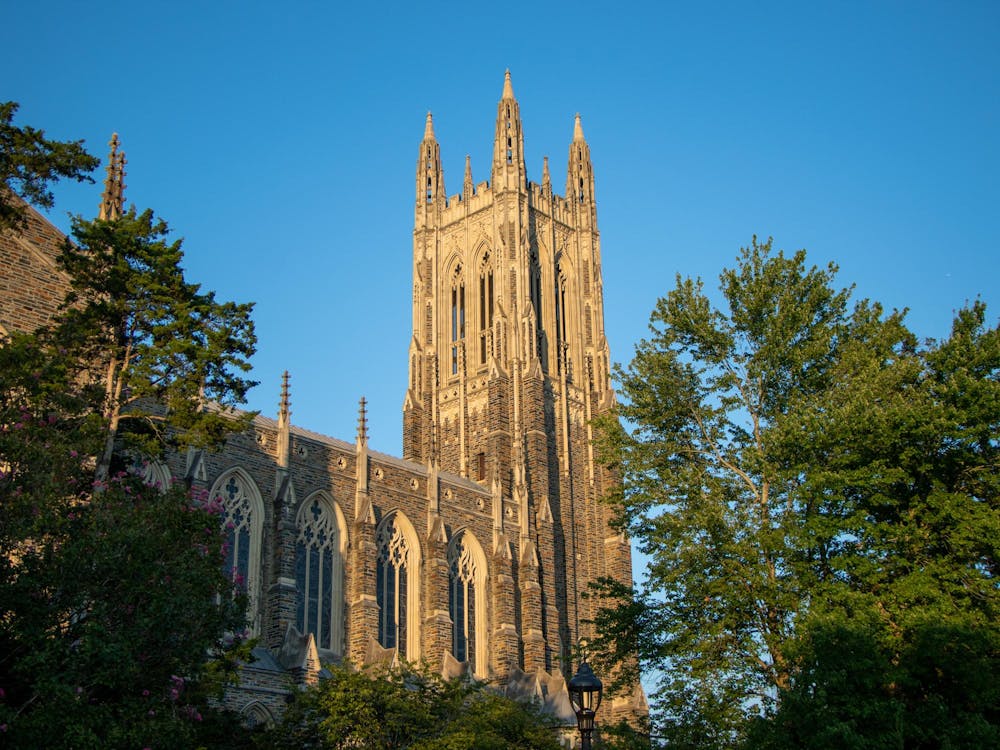As Duke expands aid for Carolinian undergraduates, what are other North Carolina schools doing to support their students?
Here’s what the financial aid policies look like for students at Duke, University of North Carolina at Chapel Hill, North Carolina State University and North Carolina Central University.
Specific grants and scholarships for in-state students
Starting in fall 2023, Duke is providing full tuition grants to undergraduates from North and South Carolina with a family income of $150,000 or less. Additional benefits, including assistance for room and board, are available for qualifying students with a family income of $65,000 or less.
In addition to tuition grants, several of Duke’s merit scholarships are exclusively available for students from the Carolinas, such as the Benjamin N. Duke and Trinity Scholarships.
UNC recently announced a similar initiative, declaring that it would provide full tuition grants to North Carolina residents with a family income of less than $80,000 in response to the U.S. Supreme Court decision to overturn race-based affirmative action. The initiative will go into effect starting with the Class of 2028.
“We want to make sure students know financial constraints should not stand in the way of their dreams,” wrote UNC Chancellor Kevin Guskiewicz in his release.
UNC also has a variety of scholarships specifically tailored to in-state residents. This includes the $25 million Blue Sky Scholars initiative which provides aid specifically allotted to middle-income students from North Carolina.
Although NC State does not provide general-purpose tuition grants for in-state students, it does offer exclusive scholarships for NC residents. Among these are the Goodnight Scholarships, offered to low and middle-income students from North Carolina with notable STEM and education accomplishments.
Similarly, NCCU does not offer broad-stroke aid to NC residents but does provide scholarships including the NCCU Grant and NCCU Eagle Grant. According to the NCCU financial aid website, these scholarships are need-based and granted on a first-come, first-served basis.
Reduced base tuition for in-state students
In addition to these aid programs, UNC, NCCU and NC State have different baseline tuition rates for in-state and out-of-state students.
Duke, as a private university not affiliated with the UNC system, does not offer tuition reductions based on residency.
In contrast, for the 2023-24 school year, UNC lists annual tuition for non-residents at $37,360 while tuition for residents sits at only $7,020.
Following this trend, NC State estimates annual tuition and fees for a full-time undergraduate to be $31,977 for non-residents and $9,105 for residents during the 2023-24 school year.
An NCCU in-state student during the 2023-24 school year is expected to pay $184.50 per credit hour in tuition, while an out-of-state student of the same category would pay $727.67 per credit hour.
In addition to these differences in baseline tuition, the UNC system offers a Fixed Tuition Program. This guarantees NC resident undergraduates with a consistent tuition rate for eight consecutive semesters of college (not including summer programming). This program applies to all universities in the UNC system, including UNC, NC State and NCCU.
Aid for out-of-state students
While aid for many Triangle universities focuses on North Carolina residents, there are programs available to support out-of-state students.
Duke’s Karsh Office of Undergraduate Financial Support asserts that the University meets 100% of demonstrated need, which is allotted regardless of state residency.
Several four-year merit scholarships are also available to all Duke undergraduates.
UNC also meets the majority of demonstrated need, with 62% of applicants receiving some form of need-based financial aid.
This aid is provided via a combination of loans, gifted scholarships and work-study opportunities, many of which are on the table for residents and non-residents alike.
NC State offers a variety of institutional grants and scholarships that can be applied for upon acceptance into the university via the Pack Assist scholarship search tool. Many, if not most of these scholarships do not consider North Carolina residency when determining eligibility.
NCCU also has merit-based scholarships and grants offered to all undergraduate students.
Get The Chronicle straight to your inbox
Signup for our weekly newsletter. Cancel at any time.

Bennett Gillespie is a Trinity first-year and a staff reporter for the news department.

